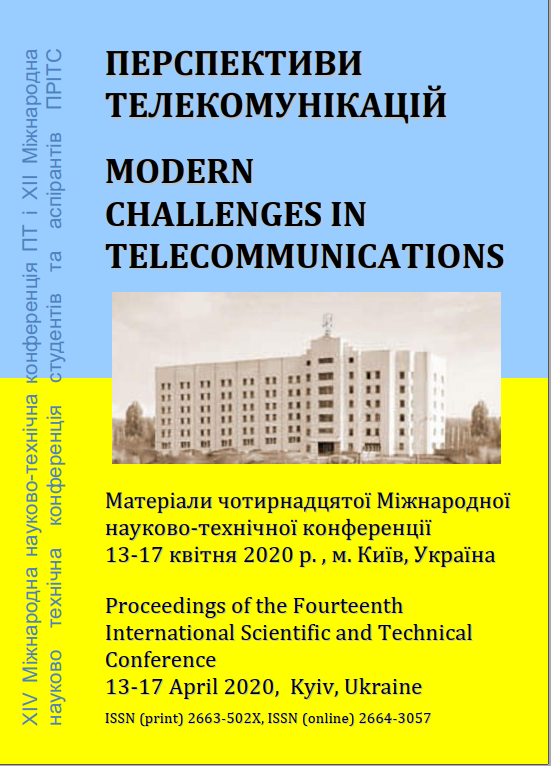ПОРІВНЯННЯ ЗАВАДОСТІЙКОСТІ ШИРОКОСМУГОВИХ ТА ВУЗЬКОСМУГОВИХ СИГНАЛІВ ЗВ’ЯЗКУ В УМОВАХ НИЗЬКОЇ ЕНЕРГЕТИКИ
Ключові слова:
ЗАВАДОСТІЙКІСЬ, СИГНАЛ ЗВ’ЯЗКУАнотація
Широкосмугові сигнали (ШСС), попри деяких існуючих суджень, не забезпечують кращої достовірності і є виправданими в тих випадках, коли необхідно забезпечувати зв'язок в умовах впливу штучних перешкод з боку супротивника. Якщо ШСС має обмеження в ресурсі (обмежена енергія сигналу), то вони ведуть до втрати завадостійкості або розтраті ресурсу, коли намагаємося відновити вихідну достовірність. Засобом, що дозволяє підвищити достовірність прийому є завадостійке кодування, однак декодер не може розрізняти спосіб обробки сигналу до його входу, тому при рівній енергетиці і однаковій швидкості символів джерела, ВСС мають перевагу і на цьому етапі обробки сигналів.
Noise immunity comparison of narrowband and broadband signals in low
energy conditions
In this paper considered a comparative analysis of the noise immunity of wideband and narrowband signals. The properties of broadband signals in low energy conditions are analyzed.
Посилання
Семенов А.М., Сикарев А.А. Широкополосная радиосвязь. – М.: Воениздат, 1970. – 280 с.
Варакин Л. Системы связи с шумоподобными сигналами.– М.: Радио и связь, 1985.–384 с.
Мазурков М.Системы широкополосной радиосвязи.–Одесса:Наука и техника,2009.–344 с.
Основи теорії телекомунікацій / Підручник / Під заг. ред. Ільченка М.Ю. — К.: ІССЗІ НТУУ «КПІ», 2010. –– 786 с.
##submission.downloads##
Як цитувати
Номер
Розділ
Ліцензія
Авторське право (c) 2020 Леонід Олександрович Уривський, Богдан Олегович Шмігель

Ця робота ліцензується відповідно до Creative Commons Attribution 4.0 International License.
Authors who submit to this conference agree to the following terms:a) Authors retain copyright over their work, while allowing the conference to place this unpublished work under a Creative Commons Attribution License, which allows others to freely access, use, and share the work, with an acknowledgement of the work's authorship and its initial presentation at this conference.
b) Authors are able to waive the terms of the CC license and enter into separate, additional contractual arrangements for the non-exclusive distribution and subsequent publication of this work (e.g., publish a revised version in a journal, post it to an institutional repository or publish it in a book), with an acknowledgement of its initial presentation at this conference.
c) In addition, authors are encouraged to post and share their work online (e.g., in institutional repositories or on their website) at any point before and after the conference.

